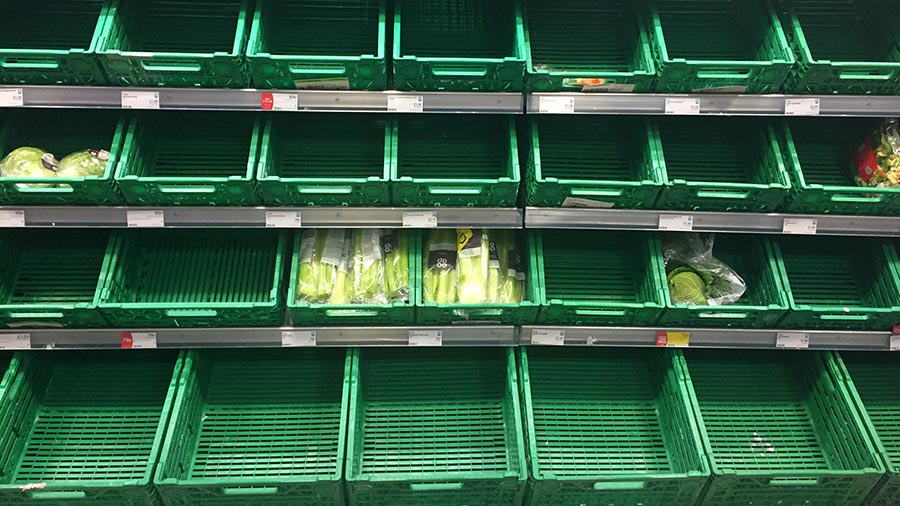Opinion: Imports highlight need for ‘deficiency payments’
 © Ink drop/Adobe Stock
© Ink drop/Adobe Stock There can now be little doubt that government policy towards agriculture is different from that expressed by some ministers.
It is actions that count and the race to do deals with foreign countries, most of which have the potential to disadvantage domestic producers, shows where the real priorities lie.
So, farmers in Australia, New Zealand, the US, Mexico, Canada and many others will benefit – and bland assurances that their goods will not be allowed to undermine ours, either by price, or quality are as worthless as nipples on a boar.
See also: Opinion – family farms will suffer most in the financial squeeze
The government is clearly determined to import more food (in the mistaken belief it will be available and cheap) and try to hold down the cost of living.
It believes the environment will attract more votes. Meanwhile, ministers seem oblivious to the growing number of empty supermarket shelves that will almost certainly multiply.
Those of us who produce food predicted shortages of things such as eggs, salads and fresh fruit. Nevertheless, farm minister (and a farmer) Mark Spencer said the other day there is no crisis, just a temporary blip, or words to that effect.
Perhaps he is more concerned to keep his place in government than he is about the viability of his Nottinghamshire farm.
Pressing ahead
But the government seems determined to press ahead with increasing imports, so it may be time to reassess how we respond. The blunt instrument of free trade will destroy us against such competition.
And I think back to the period just after the Second World War. This country was short of food and had to import to keep people fed. We still had rationing and it was with us for several years after.
James Turner (later ennobled as Lord Netherthorpe) was president of the NFU and Tom Williams was the Labour government’s minister of agriculture, fisheries and food (note his full title).
Both agreed that farmers needed stability and fair incomes if they were to increase their contribution to the nation’s food supply.
The outcome was the 1947 Agriculture Act, which guaranteed viable returns to efficient farmers by compensating them for any deficiency in domestic market prices for goods caused by cheaper imports.
The parallels with today are not comprehensive. Food shortages were more intense then than now, although that could change.
There were many more farmers, far fewer people to feed and no unregulated supermarkets, which have since been entrusted with supplying food in the absence of a proper food policy.
But we are suffering from a war, albeit someone else’s, which has raised production costs at an alarming rate. And our self-sufficiency is declining fast despite (or perhaps because of) those ubiquitous supermarkets.
British farmers could help. Given the right incentives, they could produce a lot more, as well as caring for the environment.
What they need is compensation for market losses incurred as a result of increasing imports. Deficiency payments, if you like, similar to those farmers benefited from in the past.
And if it costs more than the £2.4bn currently allocated – so what? Comparatively, that amount is little more than loose change these days and it is the government’s job to ensure people are fed.

